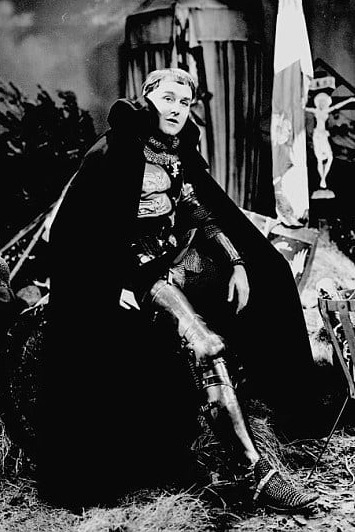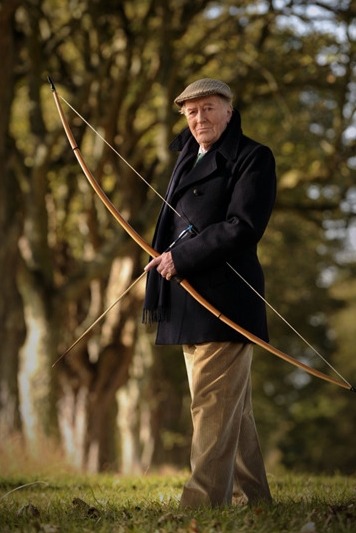My history hero: Henry V Actor Robert Hardy explains why he admires a medieval king (from the BBC Hi
My history hero: Henry V Actor Robert Hardy explains why he admires a medieval king (from the BBC History Magazine, December 2015)Photos: Robert Hardy as Henry V in 1960 / with one of his longbows in 2011When did you first hear about Henry V?Long ago, back in the mists of time! In my childhood, for sure – but I learnt more about him at university and also did research of my own. I’ve been fascinated by the key figures on the English side in the Hundred Years’ War, such as the Black Prince and Henry V, for as long as I can remember. What kind of person was he?He was well-educated and well-read, like a lot of nobles at the time. Yet he was blunt in speech, in action and in his attitude to people he got straight to the point. He was also immensely keen on justice for all. Moreover, Henry was the first monarch to go against the fashion of the day for speaking and writing in French he championed the use of English both privately and in public life. He was also a fine archer, wrestler and athlete indeed, in his youth, it was said that he could outrun a deer and bring it down! What made Henry V a hero?He spared no pain in driving himself, and those around him, in achieving his aims – and that was true of his army at Agincourt, too. He was tough but he drove his body to such an extent that he died very young, from dysentery, aged around 35. Another wholly admirable thing about Henry was his courage, which he showed in abundance after being struck by a barbed arrow at Shrewsbury. The arrow head penetrated his skull to a depth of six inches. Can you imagine the agony of the wound, and of then having it extracted? Yet he bore it all! The great medieval historian, KB McFarlane, argued that Henry was the greatest man that ever ruled England – which is a hell of a claim!What was Henry’s finest hour?Almost certainly, his victory at Agincourt – very much against the odds, because his forces were so outnumbered by the French. Henry led from the front, leading his troops into battle and engaging in hand-to-hand combat with the enemy. And his leadership, character and ability to keep his army – which boasted thousands of archers – together played a vital role in securing victory. He was a Napoleon of the battlefield. Incidentally, it’s almost certainly true that Henry really did give a speech to his troops on the eve of battle emphasising the justness of his cause, as Shakespeare wrote in his play.Is there anything you don’t particularly admire about Henry V?It’s hard to admire some of the acts that he perpetrated in war (notably after Agincourt), which we would nowadays call cruelty. But the truth is that he simply waged warfare according to the accepted rules of the age. It’s pointless to judge anybody that distant in time by the attitudes, laws and softness of today.Can you see any parallels between Henry’s life and your own?Well, I’ve played Henry V on stage, television and film, and written about his military life. But that’s as far as it goes…If you could meet Henry, what would you ask him?As he lay dying I’d ask him how bitterly he regretted that he wouldn’t be able to finish his extraordinary plan for France and Europe; and what he meant when, just before he died, he shouted out: “Though liest, though liest– my portion is with the Lord Jesus.” -- source link
Tumblr Blog : thelongbowman.tumblr.com
#robert hardy#henry v#henriad#history#theatre#shakespeare#interview#photos

